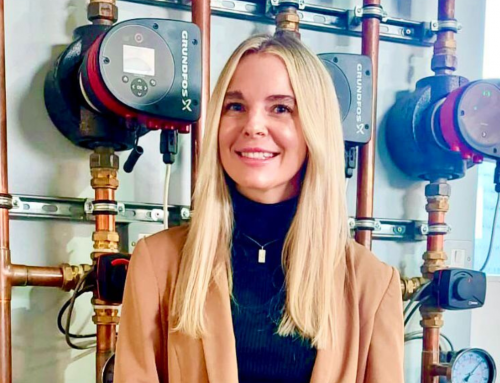According to the industry regulator, Ofgem, the average household spends around £1,277 a year on heating and power – that makes energy one of the biggest annual costs for UK households.
And now with the rocketing cost of gas and oil is prompting millions of households to think about ways to cut their fuel consumption. Energy bills will rise by 54 per cent to an average of about £2,000 a year from April 1 and analysts are predicting that they could rise by another £500 in October under a second revision of the price cap.
How much energy does the average household use?
The average home, containing four occupants, now uses 13 electronic appliances (including TVs and laptops). That’s a huge leap compared with 1990, when just four appliances were typically used, according to the Energy Consumption in the UK (ECUK) 2017 report.
But despite owning more appliances, we still use roughly the same amount of energy as we did two decades ago, meaning our gadgets have become more energy-efficient over time. But, there’s still a lot you can do to reduce energy consumption – and save money.
How to save electricity
There are a few changes you can make around the home that could help cut down your average electricity usage. This can include using more efficient gadgets and appliances, from energy-saver lightbulbs to A+++ rated dishwashers, as well as replacing old appliances, and avoiding wasted power by switching unused devices off at the plug.
How to save gas
There are also things you can do to save on gas bills, such as upgrading your gas appliances to more efficient models or installing a smart thermostat to help you track usage and have more control over your gas-powered central heating.
How to save energy
The energy-saving tips below give you some tools and tactics that will help you save gas and electricity at home. We have included estimated figures from the Energy Saving Trust to illustrate the potential energy savings that you could make.
1. Turn off standby appliances
- Turn appliances off at the plug to save an average of £30 a year.
- Use plug sockets that can be turned on and off via your phone, to make sure you switch unused appliances off. You could use cheaper timer plugs to schedule turning appliances off.
2. Install a smart thermostat
- Smart thermostats can make your heating more efficient by only warming the rooms you are using.
- They learn how long it takes to heat your home, so they can have it at the right temperature at exactly the right time.
- They can also be controlled by your phone, which means you won’t have to come back to a cold home.
- If you installed room thermostats, programmers and thermostatic radiator valves, you could save around £75 a year.
3. Turn down your thermostat
- Almost half the money spent on energy bills is absorbed by heating and hot water costs.
- Turning your heating down by just one degree could save up to £80 a year.
4. Buy efficient appliances
- Throwing out a perfectly good appliance won’t save you much money, but when it is time to swap, going for one with a high energy-efficiency rating can be worth the investment.
- An A+++ washing will typically use £65 less energy than an A+ one over an 11-year product lifespan.
- A modern, efficient dishwasher will typically cost around £7 less a year to run compared to an older model.
- An A+++ fridge freezer will save around £320 in energy bills over its lifetime compared to an A+ model.
5. Install a new boiler
- You can save energy by upgrading your old boiler to a new A-rated condensing boiler with a programmer, room thermostat and thermostatic radiator controls.
- Based on fuel prices in March 2019, a detached house upgrading from a G-rated boiler could save around £300 a year.
6. Consider Renewable Energy systems like Ground/Air Source Heat Pumps
- With around a third of the country’s carbon emissions coming from how buildings are heated – it’s easy to see why Renewable Energy is becoming ever more important!
- Renewables and low carbon heating systems, such as Ground or Air Source Heat Pumps; help create eco-friendly homes, thus reducing emissions and environmental impact.
7. Wash clothes at a lower temperature
- Washing at 30 degrees rather than 40 degrees can help reduce your energy usage, and if you can cut out one wash cycle per week you’ll clip £5 off your annual energy bill.
8. Be smarter about water
- You can save around £25 a year by washing up in a bowl rather than using a running tap.
- Buying a more efficient showerhead can save you as much as £18 per person a year on energy bills, plus an additional amount if you have a water meter.
- If you fit a shower timer in your bathroom, you could save up to £7 per person each year by cutting just one minute off every shower.
9. Invest in double glazing
- Double glazing insulates your home from the cold and helps reduce your heating bill, as well as keeping the noise out.
- If your semi-detached home is entirely single glazed, you could save as much as £110 a year by installing A-rated double glazing.
10. Draught-proof your property
- A cold draught can cause your home to lose heat, which makes it more tempting to turn the heating up. Draught excluders or draught-proofing kits are a good way to prevent this.
- Seal cracks in floors and skirting boards, line your letterbox and block an unused chimney to reduce your heating bills by up to £35 a year.
- If you don’t have double glazing, you can buy plastic lining for your windows to save energy and keep more heat in.
11. Insulate the roof
- Insulating your roof can stop heat from escaping from your home? However, the process can be complicated so it may be best to employ an expert to do this.
- While insulating your loft can cost several hundreds of pounds, it can also shave around £135 off your energy bills each year if you live in a typical semi-detached house.
12. Monitor your usage
- Keeping a watchful eye on your consumption levels can help you decide if and when you have to change the way you use energy.
- Installing a Smart Meter lets you track your consumption with accurate and real-time information.







Leave A Comment